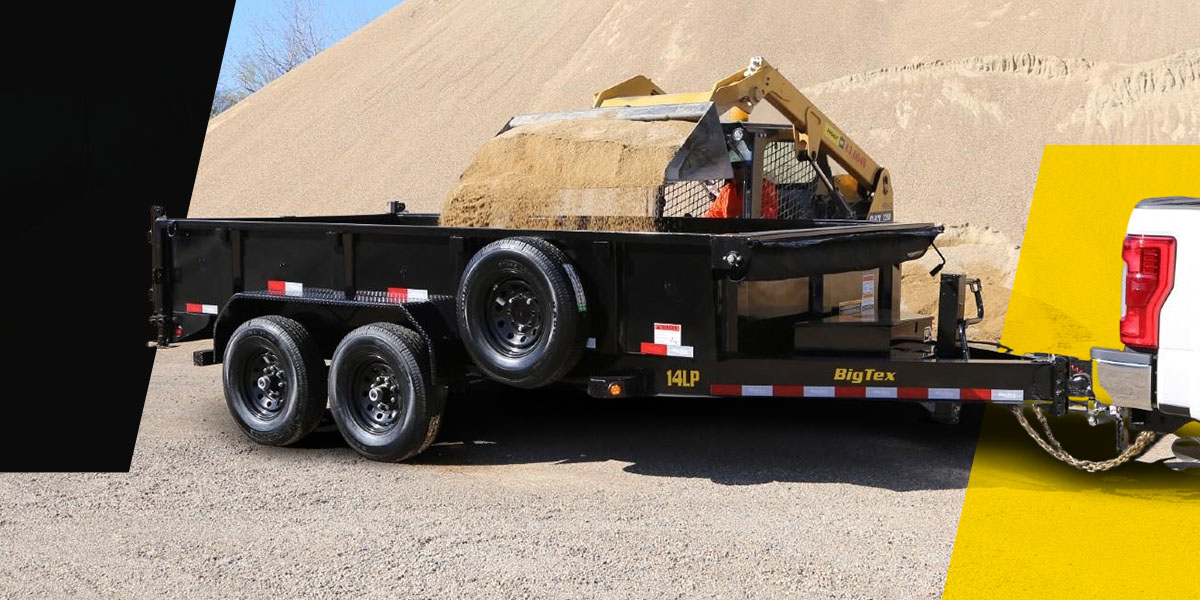Trailers can carry a wide range of cargo and meet various industries’ transportation needs. For example, flatbed trailers have an open platform without sides or a roof, making them suitable for transporting oversized or irregularly shaped items, construction materials, machinery, soil and equipment.
While flatbeds are versatile enough to fit most industries, you have other options to consider. For example, miners need heavy-duty equipment and trailers that can handle rugged terrain, while construction workers must haul different materials to various sites. Farmers also need robust gear for carrying livestock, food, seeds and fertilizer.
Machinery and equipment use varies across sectors, but every worker can use a trailer. This article will review different trailer models and what the top industries use on their jobs, sites and businesses.
Different Types of Trailers
Trailers come in different sizes and types, each with features that could be useful to your industry.
- Flatbed trailers: Flatbed trailers have an open platform that’s accessible from any direction.
- Dump trailers: As the name suggests, these trailers have a dump bed with a lifting mechanism.
- Enclosed trailers: Enclosed trailers are a box shape and offer protection against the elements and theft.
- Equipment trailers: Like the flatbed, the equipment trailer offers a large open platform, but it is more durable.
- Utility trailers: These also have a flatbed but come with a pipe rail or wall. They also have multiple gate and ramp styles depending on your needs.
- ATV utility trailers: ATV utility trailers are best for heavy-duty use.
Industry-Specific Best Trailers
Each trailer has features that cater to different demands. For example, dump trailers are invaluable for landscapers and construction workers who need to move large piles of materials. Let’s break it down into each sector.
Construction
Here are some of the top trailers used in the construction sector.
- Flatbeds: The flatbed trailer is the construction industry’s workhorse, carrying heavy items like steel beams and pipes.
- Dump trailers: Construction workers must move materials like concrete and debris. Thanks to its bucket-shaped bed, the trailer lets you load a lot. The hydraulic lifting mechanisms also increase efficiency and decrease manpower.
- Equipment trailers: Jackhammers, toolboxes, excavators and even bulldozers must move from one site to another. Equipment trailers can accommodate different sizes and weights. Depending on the model, they also have ramps and hydraulic systems, to smooth the loading process.
Agriculture
The agriculture industry needs trailers to transport the harvest and move equipment for storage.
- Flatbeds: This trailer can carry grains, fruits and vegetables. They can also move farm equipment for day-to-day activities.
- Utility trailers: Another versatile trailer, the utility has a wall and pipe rail to help keep everything in check. You can tow your tools, fencing materials and items like feed behind your truck.
- Specialized trailers: Some trailers are specifically for the agriculture industry, such as trailers for livestock and grain. Consult with an experienced dealer to buy something unique to your business or farm.
Energy and Mining
Energy and mining workers frequently transport heavy machinery and materials. The terrain may be rocky and uneven, so the trailers must be robust and stable.
- Gooseneck trailers: Gooseneck trailers are in the same family as flatbed trailers, but they have specific type of hitch attached to a fixed ball. They are longer and broader than your average flatbed, so you can use them to haul generators and other hefty machinery.
- Dump trailers: A dump trailer that will suit your project size and weight is perfect for loading and unloading gravel and minerals.
- ATV utility trailers: The ATV trailer has a pipe rail or wall to contain the material and give it extra support. They are ideal for all terrains and can handle the more challenging aspects of being on a heavy-duty job.
General-Purpose and Small-Scale Jobs
Until now, we have focused on leading sectors. But what about smaller jobs and general-purpose businesses? Your first trailer will likely be industry-specific, such as the equipment trailer or horse trailer. But you’ll need something more versatile if you do landscaping or construction.
Consider a utility trailer instead of a flatbed. These trailers are more robust and durable to help you tackle a broader range of projects. If you’re starting out, you might still be uncertain what jobs you will take on, so it’s better to get something you know can do it all.
Get What You Need at Big Tex Trailer World
Big Tex Trailer World’s specialists are in more than 60 nationwide locations, ready to take your call and answer your questions. We have new trailers, used parts, services — the complete package. With over 20 years of expertise, you will be in good hands with our team.
Ask about our affordable rental options if buying a trailer is outside your budget or you only need it for a one-off job. We stock gooseneck, car and flatbed trailer rentals at select locations.
Explore our product catalog or find a local dealer near you. You can also call us at 888-885-1005 or fill out and submit our contact form to learn more.


